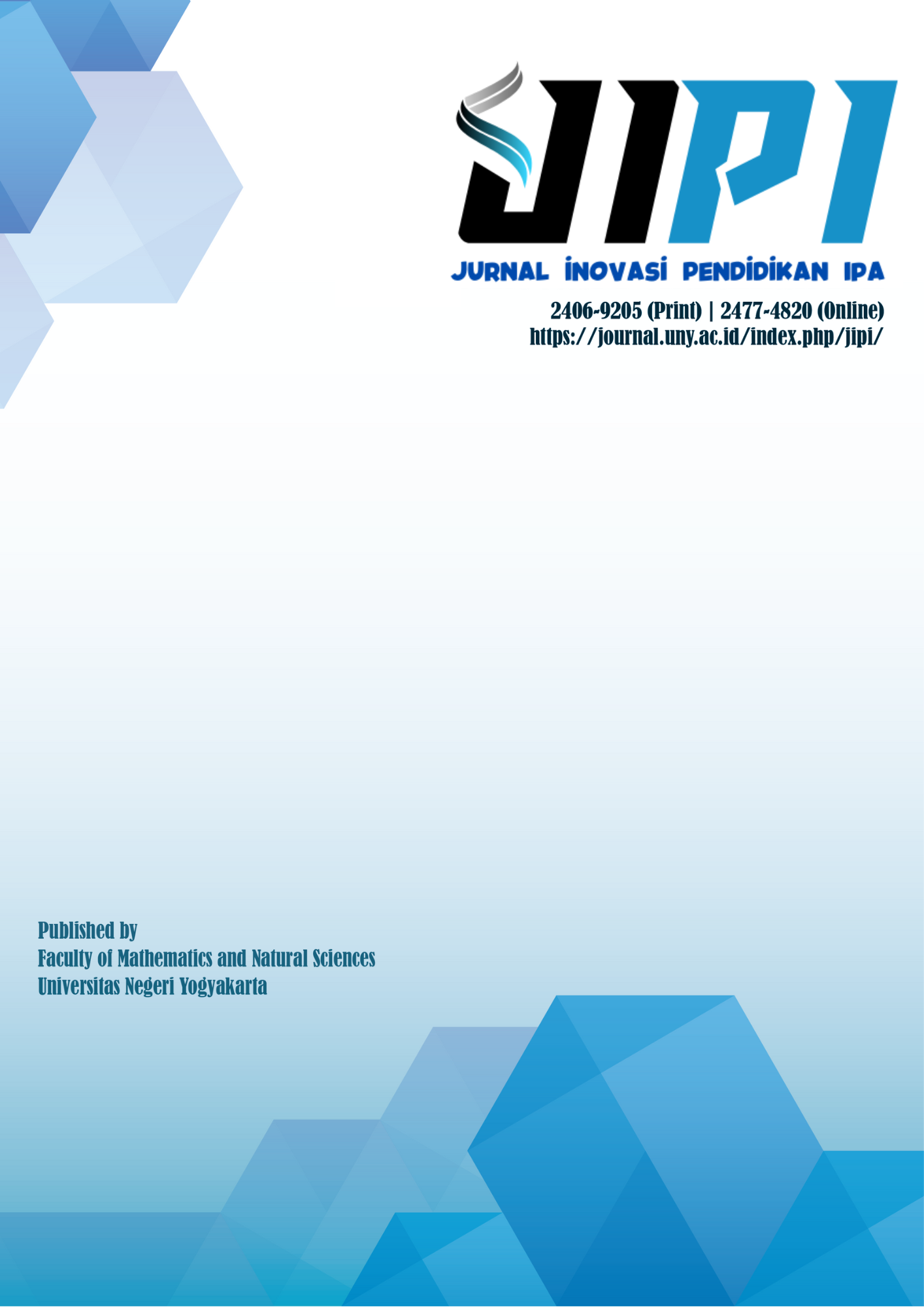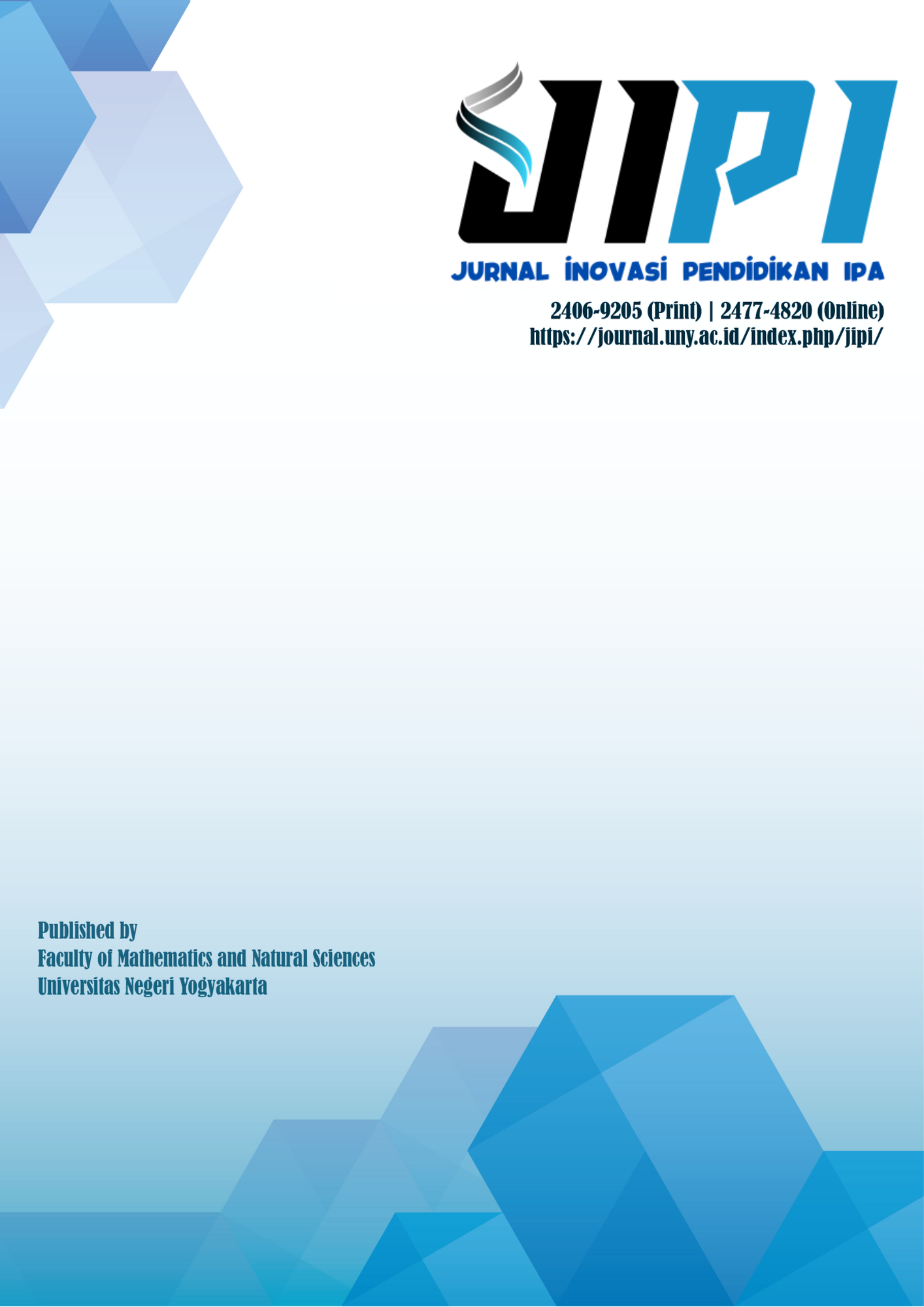A Systematic Review of PjBL in Chemistry Education: Bridging Theory and Practice
DOI:
https://doi.org/10.21831/jipi.v11i2.81122Keywords:
Project-Based Learning, Chemistry Education, Organic Separation Techniques, Student Engagement, Teacher Training.Abstract
Project-based learning (PjBL) is an innovative educational approach that integrates real-world contexts to enhance student engagement and learning outcomes, particularly in chemistry education. This systematic review examines the effectiveness of PjBL in teaching organic compound separation techniques, a critical area in both academic and industrial applications. Based on a synthesis of 10 selected studies from the last five years, the review highlights the impact of PjBL on improving student engagement, conceptual understanding, and laboratory competencies. Students involved in PjBL activities showed greater motivation and deeper conceptual learning, particularly in mastering complex techniques such as chromatography and distillation. Furthermore, PjBL enhanced collaboration, critical thinking, and problem-solving through active participation in hands-on tasks. Despite these benefits, several challenges were identified, including limited resources, time constraints, and insufficient teacher training. This review offers strategic recommendations, including the development of low-cost resources and the expansion of professional development programs. Future research should investigate the long-term effects of PjBL on academic achievement and career readiness, especially within STEM education contexts
References
Baker, R. S., & Inventado, P. S. (2018). Educational data mining and learning analytics. In Handbook of Learning Analytics (pp. 197-206). Society for Learning Analytics Research.
Belland, B. R., & Munoz, S. (2022). Project-based learning in STEM: A review of research on student engagement and motivation. International Journal of STEM Education, 8(1), 1-12.
Belland, B. R., Kim, C., & Hannafin, M. J. (2013). A framework for designing scaffolds that improve motivation and cognition. Educational Psychologist, 48(4), 243-270.
Blumenfeld, P. C., Soloway, E., Marx, R. W., Krajcik, J. S., Guzdial, M., & Palincsar, A. (1991). Motivating project-based learning: Sustaining the doing, supporting the learning. Educational Psychologist, 26(3-4), 369-398.
Cakici, D., & Turkmen, H. (2013). The effect of project-based learning on the students' academic achievement and attitude towards chemistry. Educational Research and Reviews, 8(17), 1124-1130.
Choi, S., & Lee, J. (2021). Enhancing student engagement in chemistry education through project-based learning. Journal of Chemical Education, 98(5), 1547-1555.
Gopalan, R., & Suresh, S. (2020). The role of collaborative learning in organic chemistry education through project-based learning. Journal of Science Education, 34(2), 65-79.
Hofstein, A., & Lunetta, V. N. (2004). The laboratory in science education: Foundations for the twenty-first century. Science Education, 88(1), 28-54.
Johnson, R., et al. (2021). Project-based learning in organic chemistry: Bridging theory and practice in laboratory settings. Chemistry Education Journal, 59(5), 674-687.
Krajcik, J. S., & Blumenfeld, P. C. (2006). Project-based learning. In Handbook of Research on Science Education (pp. 317-348). Lawrence Erlbaum Associates.
Krajcik, J. S., & Shin, N. (2014). Project-based learning in science: An integrated approach. In Handbook of Research on Science Education, Vol. 2 (pp. 661-688). Routledge.
Krajcik, J. S., & Blumenfeld, P. C. (2006). Project-based learning: A powerful tool for teaching science. In Handbook of Research on Science Education (pp. 317-348). Lawrence Erlbaum Associates.
Lee, S., & Kim, H. (2023). Barriers to implementing project-based learning in chemistry education. Journal of Chemical Education, 100(4), 1234-1240.
Minner, D. D., Levy, A. J., & Century, J. (2010). Inquiry-based science instruction: What is it and does it matter? Results from a research synthesis years 1984 to 2002. Journal of Research in Science Teaching, 47(4), 474-496.
Miller, C., & Liu, M. (2019). Project-based learning in science education: Bridging theory and practice. Science Education Review, 18(2), 112-130.
Prince, M., & Felder, R. M. (2006). Inductive and deductive teaching methods. Journal of Engineering Education, 95(2), 123-138.
Riebe, L., Girardi, A., & Whitsed, C. (2016). A systematic literature review of teamwork pedagogy in higher education. Small Group Research, 47(6), 619-664.
Schwartz, D. L., Bransford, J. D., & Sears, D. (2005). Efficiency and innovation in transfer. In Mestre, J. (Ed.), Transfer of Learning from a Modern Multidisciplinary Perspective (pp. 1-51). Information Age Publishing.
Seidel, T., & Shavelson, R. J. (2007). Teaching effectiveness research in the past decade: The role of theory and research design in disentangling meta-analysis results. Review of Educational Research, 77(4), 454-499.
Smith, J., & Jones, A. (2022). The impact of project-based learning on student motivation in chemistry. Chemistry Education Research and Practice, 23(1), 56-68.
Thomas, J. W. (2000). A review of research on project-based learning. The Autodesk Foundation.
Taylor, R. (2020). The impact of active learning strategies on student motivation and achievement in chemistry. Journal of Education and Practice, 11(2), 35-43.
Wang, L., Zhang, Y., & Li, Q. (2021). Enhancing understanding of organic compound separation through project-based learning. Journal of Chemical Education, 98(9), 2789-2797. https://doi.org/10.1021/acs.jchemed.0c01245.
Wood, D., Bruner, J. S., & Ross, G. (1976). The Role of Tutoring in Problem Solving. Journal of Child Psychology and Psychiatry, 17(2), 89-100.
Zhao, J., & Li, X. (2022). Using project-based learning to teach organic chemistry separation techniques: A case study. Science Education International, 33(4), 243-252.
Zohar, A., & Dori, Y. J. (2003). Higher order thinking skills and low-achieving students: Are they mutually exclusive? The Journal of the Learning Sciences, 12(2), 145-181.
Downloads
Published
How to Cite
Issue
Section
Citation Check
License
Copyright (c) 2025 Jurnal Inovasi Pendidikan IPA

This work is licensed under a Creative Commons Attribution-ShareAlike 4.0 International License.
The authors submitting a manuscript to this journal agree that, if accepted for publication, copyright publishing of the submission shall be assigned to Jurnal Inovasi Pendidikan IPA (JIPI). However, even though the journal asks for a copyright transfer, the authors retain (or are granted back) significant scholarly rights.
Jurnal Inovasi Pendidikan IPA by http://journal.uny.ac.id/index.php/jipi/index is licensed under a Creative Commons Attribution-ShareAlike 4.0 International License.










